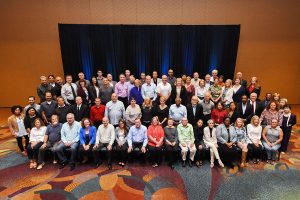For Immediate Release
Vermont Tax Practitioner Completes Rigorous National Tax Practice Institute™
 Diana Sheltra, EA Earned Elite Designation
Diana Sheltra, EA Earned Elite Designation
Washington, DC – November 14, 2016, Diana Sheltra, EA, has earned the prestigious Fellow designation from the National Association of Enrolled Agents (NAEA) for completing the three levels of the National Tax Practice Institute (NTPI®). This achievement demonstrates Diana Sheltra, EA’s dedication to protecting taxpayer rights and attests to her expertise in tax.
NTPI Fellows® have completed a demanding three-part curriculum that has uniquely prepared them to effectively represent their clients before all administrative levels of the IRS. Having successfully completed coursework covering all variances of examinations, audits, collections and appeals, and having studied best practices and role-playing, Fellows know the entire process from both the client and IRS perspective. Earning the EA license denotes competence and the right to represent taxpayers. Fellows have made the commitment to a higher level of knowledge and excellence. The course, open only to enrolled agents, CPAs and tax attorneys, was developed to prepare licensed representatives to protect their clients’ rights by disseminating the most recent information about IRS laws and procedures critical to representation.
Enrolled agents (EAs) are a diverse group of independent, federally-authorized tax practitioners who have demonstrated a high level of technical competence in tax and are licensed to practice by the Internal Revenue Service. The only federally-authorized tax practitioners with unlimited rights of representation before the IRS, EAs advise and represent taxpayers who are being examined by IRS, are unable to pay taxes or are trying to avoid or recover penalties. EAs also prepare tax returns for individuals, partnerships, corporations, estates, trusts and any other entities with tax-reporting requirements. Unlike tax attorneys and CPAs, who may or may not choose to specialize in taxation, all EAs specialize in taxation and are required by the federal government to maintain their professional skills with continuing professional education. Enrolled agents are “America’s Tax Experts!”
Diana Sheltra, EA is a member of the National Association of Enrolled Agents (NAEA) and the Northern New England Society of Enrolled Agents.
###
About NAEA
The National Association of Enrolled Agents (NAEA) is a professional society whose members are dedicated to honest, intelligent and ethical representation of the financial position of taxpayers before the IRS. Its efforts are supported nationwide through a network of affiliated state and local chapters. Members of NAEA must fulfill continuing professional education requirements that exceed the IRS’ requirements. NAEA membership also entails stringent adherence to a Code of Ethics and Rules of Professional Conduct, as well as compliance with the Treasury Department’s Circular 230 regulations. NAEA members are experienced, well-trained tax professionals who effectively represent their clients and work to ensure the tax code is fairly applied and reasonably enforced.
 The Internal Revenue Service and tax software people lead you to believe that your filing is getting easier and easier. Meanwhile, the tax laws remain dense and complex.
The Internal Revenue Service and tax software people lead you to believe that your filing is getting easier and easier. Meanwhile, the tax laws remain dense and complex.
The distinction is that the simple and fast way isn’t always the best way. So why should you pay to have someone file your tax return? The top reason is that you can save money. If a tax professional finds just one item that you or your prepackaged software missed, it can more than recoup your outlay.
More difficult than deciding to choose a tax professional is deciding which one to choose. There are a bewildering number of options from chain preparers to single-person shops to tax preparation specialists.
The big preparers have the same advantages that other retail chains have. Their employees receive some training, they are used to solving simple tax questions.
- Consider if your return is not complex and you are solving relatively simple problems, and they will take care of you quickly.
Enrolled agents (EAs) are licensed by the federal government, have passed a comprehensive IRS examination, can represent you in disputes, and are required to participate in continuing education. To find an agent near you, check the directory at http://taxexperts.naea.org/.
- Consider if you have real or imagined fears of facing an audit. Also consider if you run a small business or you need help to reduce your tax liability.
- Consider if you need long-term tax planning, you have opened or closed a business, your life situation has changed dramatically, or you have had high tax bills and are looking for relief this time around.
Tax lawyers are not necessarily return preparers but they can help with advice in complex legal circumstances.
- Consider if you are facing criminal charges.
Regardless of the type of preparer you choose, it’s important to ask some questions before you drop off your documents and walk out of the office.
The IRS has a handy list of things that you should know about your preparer here: https://www.irs.gov/uac/tips-for-choosing-a-tax-return-preparer
In addition, you probably want to know if the professional is familiar with situations like yours, is safe or aggressive when it comes to deductions, what documents they will need, and how accessible they are once your return has been filed. Finally, watch out for these red flags with your preparer. If you see even one of them, walk away. Quickly.
- You are asked to sign a blank return.
- You are told your taxes can be prepared just using your last pay stub.
- Your return will not be sent directly to you or directly deposited in your bank.
- Your fee is based on the amount of the refund.
 Enrolled Agents (EAs) are America’s Tax Experts. EAs are the only federally licensed tax practitioners who specialize in taxation and also have unlimited rights to represent taxpayers before the IRS.
Enrolled Agents (EAs) are America’s Tax Experts. EAs are the only federally licensed tax practitioners who specialize in taxation and also have unlimited rights to represent taxpayers before the IRS.
Just because a person has the EA license may not make him or her the best choice for your tax purposes. Your decision should be based on your particular tax situation. You can learn more about enrolled agents at http://www.naea.org or https://www.irs.gov/tax-professionals/enrolled-agents/enrolled-agent-information.
Only enrolled agents are required to demonstrate to the IRS their competence in all areas of taxation, representation and ethics before they are given unlimited representation rights before IRS. Unlike attorneys and CPAs, who are state licensed and who may or may not choose to specialize in taxes, all enrolled agents specialize in taxation.
In addition to the stringent testing and application process, the IRS requires enrolled agents to complete 72 hours of continuing education, reported every three years, to maintain their enrolled agent status. National Association of Enrolled Agents members are held to a higher standard; they are obligated to complete 30 hours per year (for a total of 90 hours per three year period). Because of the expertise necessary to become an enrolled agent and the requirements to maintain the license, there are only about 46,000 practicing enrolled agents.
Areas of representation:
- IRS Tax Appeal
- IRS Back Taxes Relief
- IRS Bank Levy Relief
- IRS Bankruptcy Tax Relief
- IRS Tax Returns Filing Services
- IRS Delinquent Tax Returns Help
- IRS Innocent Spouse Relief
- Installment Payment Plans
- IRS Offer In Compromise Help
- IRS Payroll Tax Problems
- IRS Penalty Abatement
- IRS Tax Lien Help
- IRS Wage Garnishment Relief
- IRS Tax Debt Collections